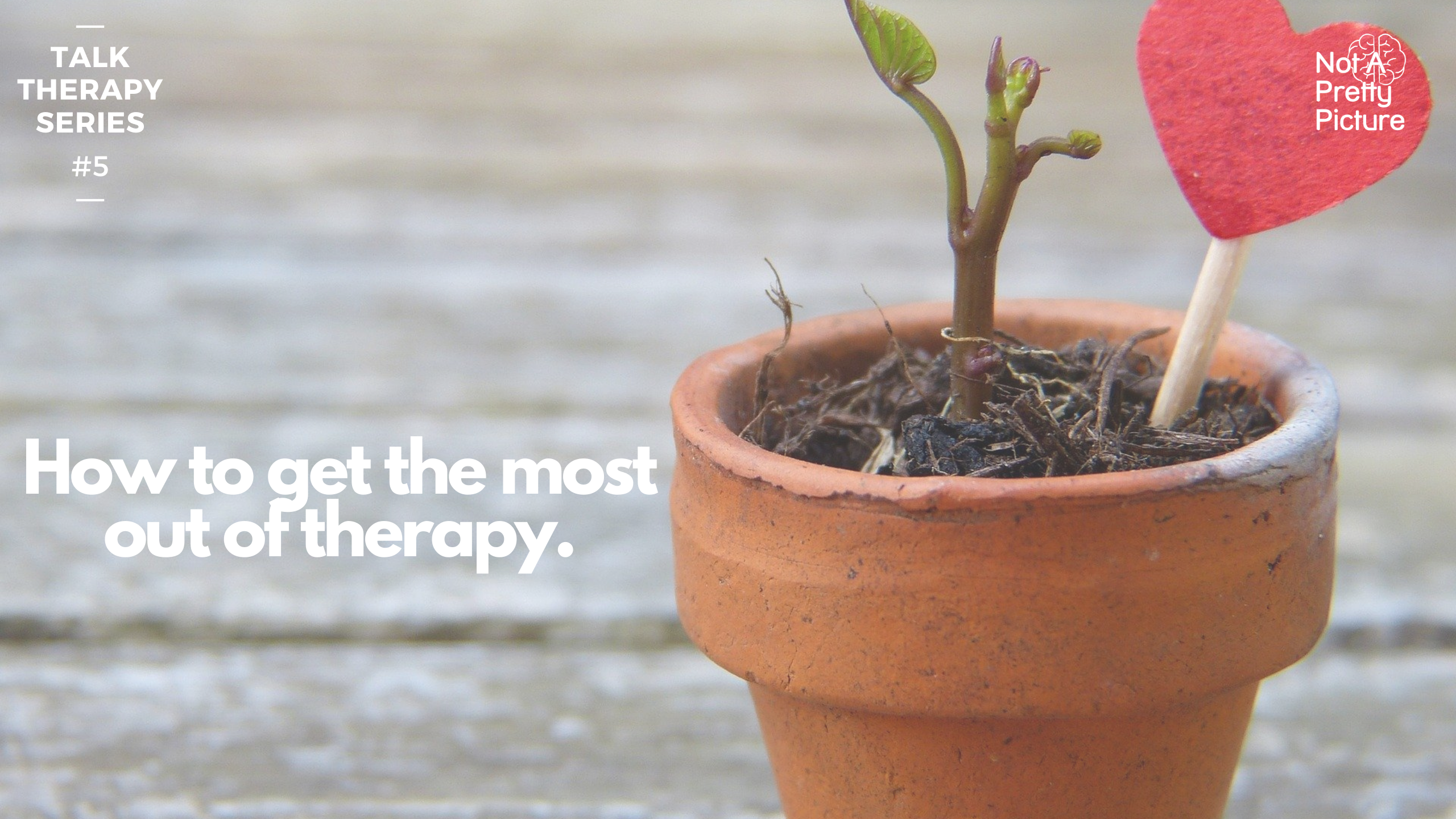So, you’ve found a therapist, dealt with the initial nerves, and are committed to improving your mental health.
What can YOU do to get the most out of your therapy sessions?
1. Firstly, you have to go in with an open mind and heart.
You can doubt what you will gain out of the sessions, you may not be convinced that therapy is for you, but you will only know for sure if you go all in, and are open with your therapist.
2. Do make sure that you define the objectives on your part.
For e.g. I want to reduce my feelings of anger towards my sister. Or, I want to stop feeling guilty about my family.
If you’re like me and come from a lifetime of trauma, you may have a million things that you might want to work on, but you will have to prioritise. I picked the ones that were bothering me the most, causing the emotional turmoil in me.
For example, my intense feelings concerning my situation (my schizophrenic brother and everything that was impacted as a result of his illness) was causing me sleepless nights, stress and and an overall cycle of hate and resentment and guilt towards the situation and the people in it. I wanted to improve my thoughts and feelings about it, for my own mental and emotional wellbeing.
Along the way as you work on the issues, you would probably end up resolving some of the other de-prioritised issues too.
3. Don’t try to impress your therapist.
Be honest. You know how you brush your teeth before seeing your dentist? No need for that here.
4. Listen to your therapist, but don’t be afraid to challenge their opinions or comments.
Especially if you think they have not grasped what you were saying. This might not be easy to do, after all, they are the experts, but they can only know as much as 1) you tell them and 2) they perceive. And they are human. Sometimes wires may get crossed.
So don’t worry about speaking your mind and clarifying things, even if you do so the next session. I did that all the time. Not because wires were getting crossed often, but because I would reflect on what we discussed, and if I felt that I needed to expand on or clarify something, I would tell her the following week.



5. Therapy really is a 2-way street.
I am not only referring to the conversations between the two of you, but even in the treatment plan. Don’t be afraid to disagree. Yes they are the professional, but if you find that a type of therapy isn’t suitable to you, let them know. For e.g. me and Schema therapy, I picked the best and relevant parts of it, but skipped the parts that were not possible to engage in.
6. Self-work is important.
And on that note, if you really want to improve your life, you need to work at it. One hour per week and then not putting in the effort to digest and discover further about what you spoke about will get you nowhere. People I spoke to who have gained a lot from therapy have said the same thing. You need to do your own reading up, reflections, self-work. Ask your therapist to recommend additional reading and self-work material.
7. Practise, practise, practise.
Even if you do the homework of analysing yourself post-session, it is still going to get you nowhere unless you practise.
When all is calm or when you’re just thinking scenarios and coming up with healthy reactions in your head, that’s easy. The proof is in the pudding when you are forced to practise what you learned when faced with the next challenging situation. This one is tough! I do a lot of pre-work when I have to interact with a contentious person or situation.
You know, I would really like to reach the stage where it’s like hitting a forehand. Muscle memory, you don’t even need to think about it, but you have the perfect reaction. 🙂



8. Look out for how you feel after the session.
Do you feel understood and supported? Or are you walking away unclear about what the 1 hour was all about, more confused than ever etc?
So, don’t hesitate to ask questions. Clarify about the type of therapy they are proposing and how long it’s expected etc. You still need to get on with life, therapy can be time consuming and tiring, especially if you are committed to self-work on your own time.
It’s good to have a status / progress check along the way.
At the end of the day, I would say you still need to take charge of your own progress, be proactive and honest with your therapist to get the most out of your sessions.
Hope you found this article useful, do you have any other tips that can help others? Share your thoughts in the comments box below!
Other Articles in the Talk Therapy series:
Confused by all the different options? How to find the right therapist for you.






One thought on “How to get the most out of your therapy sessions”